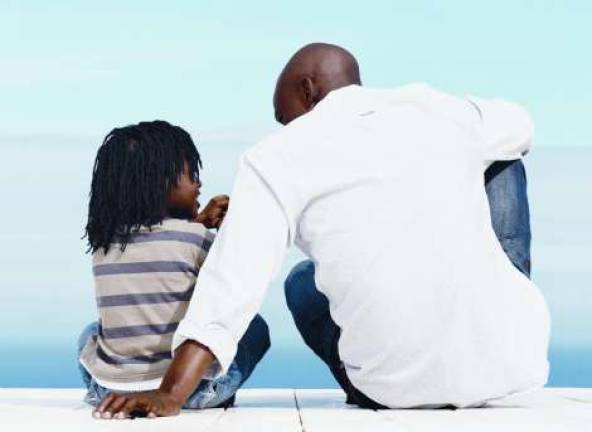NY Family: My Body Belongs to Me

How to talk to your Child about Sexual Abuse.
A few years ago, Jill Starishevsky, a prosecutor of child abuse and sex crimes in NYC, handled a case where a little girl was being regularly molested by her stepfather from the time she was 6-years-old until she was nine. After three years of being abused and keeping it quiet (which is very common), all it took was watching an episode ofOprahfor the young girl to stand up for herself. Focused on sexual abuse in children, the show's message was: "If someone is hurting you, tell an adult. If you are too scared to tell your parents, then tell a teacher." Inspired by the episode, Starishevsky's client told her teacher the very next day.
It was this heartbreaking case that prompted Starishevsky to write the children's bookMy Body Belongs to Me,and to kick-start her campaign of educating parents on how and why to start the difficult conversation with their children about body boundaries and the necessity of telling an adult if someone ever hurts or touches them inappropriately.
What I love about your book is that it's a conversation starter for children as young as three and as old as ten. This dialogue is very different than the one about "stranger awareness" because one of the things I learned from you is that sexual predators are often people that the children already know. Parents think that they have done a service to their child by only discussing stranger danger, and that if you've had this conversation with your child, then they're safe. But the statistics reveal a very different truth: 93% of child sexual abuse happens at the hands of someone that is known to the child-someone in the child's inner circle. Stranger danger only accounts for 7% of sexual abuse.
How prevalent is sexual abuse in children? It is more pervasive than people [think]. Child sexual abuse affects 1 in every 4 girls and 1 in every 6 boys by the age of 18 in the U.S. It could happen to anyone's child. There are what I call three big truths about child sexual abuse-number one is that it does not discriminate. It doesn't matter if you're black, white, rich or poor. The second big truth is that parents aren't talking to their children about sexual abuse. They don't want to scare the child, or they think that if someone was harming their child then their child would tell them or that they would be able to tell or sense if their child was being abused. Which leads to the third big truth, which is that children do not immediately disclose sexual abuse. The only way to combat these truths is through prevention education.
How old should a child be before you start talking about it with him or her? It really depends on the child, but as long as the child is old enough to communicate with you and understand what you're saying, and has times when they are out of your sight, that means you should start this conversation. Typically around age three.
Why do children often not tell anyone when they are being abused? One of the main reasons children, especially young children, don't tell is because the predator said, "This is our secret." Children want to please this person. And they like having this special secret.
Is there anything you would add to your important 10 Safety Tips list (see below)? We need to listen when our children say "no." So if Mom or Dad is having a tickling game with their child and that child says, "Stop" then we need to listen. We need to teach them that their "no" means something.
How do we help children understand that it's okay to say "no" to an adult? Saying "no" to an adult is something you actually have to practice with children because we teach our children to be respectful of adults. For example, on my daughter's first day of kindergarten my husband said to her, "Have a great first day of school. Do everything your teacher says." And I thought to myself, "No, that's not what we say." What we need to say to our children is, "Listen to everything the teacher says unless the teacher is telling you to do something that hurts you and then you don't have to listen to what the teacher tells you." We need to reinforce the message: "If someone is hurting you, you can say 'no', you can run away and you should tell someone right away."
Apparently predators often use a grooming process with their victims. Can you talk about this? Sexual predators often take baby steps. One of the ways this grooming process begins is by the predator giving the child a gift. First they may touch a child's arm or leg for too long just to see if that child will tell. If a child has been educated about inappropriate touching, then there is a greater likelihood that they will not go after that child.
Are there warning signs we can look for if we fear something has happened to our child? The physical signs may include redness to private body parts but most often the emotional and behavioral signs are obvious first. It is important to note that there are often no physical signs, especially in cases where there is a delay in disclosure. A big red flag is age-inappropriate sexual behavior or knowledge. It's so hard to tell but what I do tell parents is that the signs are unique to each child. A child doing really well in school suddenly does poorly. Or a child that always loves wearing short sleeves, now only wants to wear long sleeves.